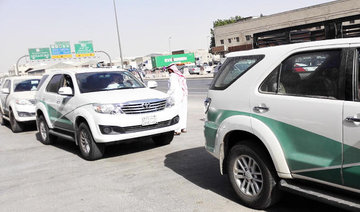RIYADH: Saudi Arabia, through the National Center for Wildlife, hosted the 10th Regional Forum of the International Union for Conservation of Nature for West Asia in Riyadh on Monday.
The event was held under the patronage of Abdulrahman Al-Fadhli, minister of environment, water and agriculture, and chairman of the center’s board.
The three-day forum gathered more than 200 experts representing union members from West Asia, along with key authorities from the region and the West Asia Regional Office.
The forum addressed nature conservation challenges in West Asia, facilitated program planning, and discussed the region’s participation in the 2025 World Conservation Congress.
It also focused on preparations for the event and enhancing regional cooperation to boost biodiversity preservation.
Mohammed Ali Qurban, CEO of the National Center for Wildlife, said: “Hosting this forum highlights our commitment to preserving the environment and wildlife, while supporting sustainable human, social, and economic development.”
He said the forum aligns with Saudi Arabia’s environmental initiatives, including the launch of protected area system plans, which aim to conserve 30 percent of the Kingdom’s land and marine territories by 2030 under the Saudi Green Initiative.
The forum covered topics such as training on nature-based solutions, integrating reserves into the IUCN Green List, sustainable land restoration, and using innovative techniques for monitoring and combating desertification.
Razan Al-Mubarak, president of the International Union for Conservation of Nature, said: “The successive challenges facing our region, West Asia, such as water scarcity and extreme heat, require a collaborative and creative approach that increases spending on the environment and sustainability.
“Finally, I cannot stress enough the importance of involving the active and inclusive role of local communities in the various regions of West Asia. We must work together to develop realistic and effective solutions and implement them in a way that takes into account the diversity of cultures in our region.”
The forum, held every four years, promotes communication and collaboration among West Asia members, providing a platform for exchanging ideas, addressing environmental challenges and developing conservation strategies.


































